Steering Committee
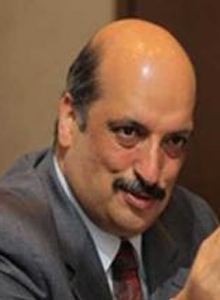
Mr Ajai Malhotra
Dist. Fellow & Sr. Advisor (Climate Change), Project Management Unit
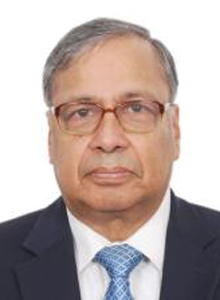
Mr Ajay Shankar
Distinguished Fellow
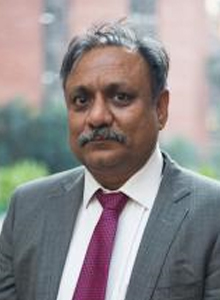
Dr Suneel Pandey
Director, Environment & Waste Management
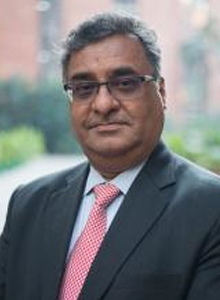
Mr Sanjay Seth
Senior Director, Sustainable Habitat
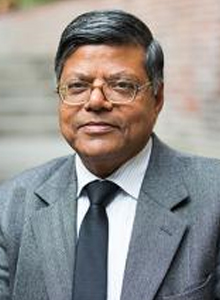
Mr Amit Kumar
Senior Director, Social Transformation
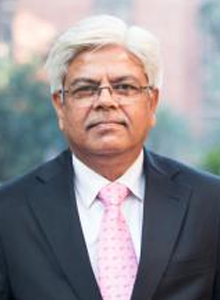
Mr A K Saxena
Senior Director, Electricity & Fuels Division
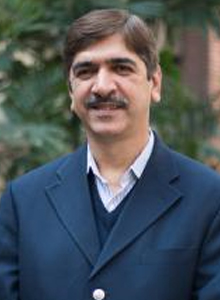
Mr Girish Sethi
Senior Director, Energy
Mr Ajai Malhotra
Dist. Fellow & Sr. Advisor (Climate Change), Project Management Unit
Ambassador Ajai Malhotra holds an M.A. in Economics from Delhi School of Economics. He was a member of the Indian Foreign Service from 1977 till retiring as Ambassador of India to the Russian Federation on November 30, 2013.
As Third/Second Secretary (Political) at the High Commission of India, Nairobi, he handled relations with Kenya and Seychelles from 1979-1982 and was Focal Point for India to the UN Environment Programme and UN-HABITAT. From 1982-1985, he was Second/First Secretary (Political) at the Embassy of India, Moscow. During 1985-1989, he was First Secretary (Political) at the Permanent Mission of India to the UN, Geneva, handling ILO, WHO, WIPO and other UN agencies and representing India on the ILO Committee on Freedom of Association.
From 1989-1993, he worked at the Ministry of External Affairs, New Delhi, initially as Deputy Secretary looking after Human Rights and International Environmental Issues and then as Director of the UN Division, handling all multilateral work except disarmament. He was Counsellor at the Embassy of India, Moscow, from 1993-1996, returning to the Ministry of External Affairs as Director in 1996. As Joint Secretary in that Ministry from 1997-1999, he guided India's relations with all Central/East European countries, including the Russian Federation. From 1999-2003, he was Minister (Commerce) at the Embassy of India, Washington DC, additionally serving from 2002-2003 as Chairman, International Cotton Advisory Committee, Washington DC.
From 2003-2005, he was India's Ambassador to Romania, concurrently accredited to Albania and Moldova. From 2005-2009, he was Ambassador and Deputy Permanent Representative of India to the United Nations, New York. He was India's Ambassador to Kuwait from 2009-2011 and to the Russian Federation from 2011-2013.
He has been on the Indian team negotiating issues such as biological diversity, climate change, desertification, education, energy, forestry, health, human rights, human settlements, intellectual property, international law, labour, ozone depletion, sustainable development and trade. He has participated in meetings ranging from the UN Conference on New and Renewable Sources of Energy (Nairobi; 1981) to the Diplomatic Conference on Intellectual Property of Integrated Circuits (Washington DC; 1989); from the WTO Summit (Seattle; 1999) to meetings of the World Health Assembly, WIPO Assembly, International Labour Conference, and UN Human Rights Commission; from UN General Assembly (2005-2009) and ECOSOC sessions to NAM, G77, BRICS and Commonwealth Summits; from UNEP Governing Council sessions to UN Democracy Fund meetings.
His association with environmental issues has included participation in the UNEP Session of a Special Character: Ten Years after Stockholm (Nairobi; 1982); contribution to the 1990 London Amendments to the Montreal Protocol on Substances that Deplete the Ozone Layer, Convention on Biological Diversity, UN Framework Convention on Climate Change, Rio Declaration on Environment and Development, Statement of Principles on Forests, and Agenda 21; participation in the UN Conference on Environment and Development (Rio de Janeiro; 1992). He has also written on issues such as the rights of future generations. In 2004, Ambassador Malhotra was awarded an Honorary Doctorate by Vasile Goldis Western University of Arad, Romania, in recognition of his work in support of environmental causes and development.
Ambassador Malhotra is a Distinguished Fellow with TERI since April 2014. He is also presently an Independent Director of the Oil and Natural Gas Corporation, as well as Chairman and Managing Trustee of CHIKITSA and SHIKSHA (which provide free primary health care, education and vocational training to the underprivileged), Chairman of the Nehru Trust for the Indian Collections at the Victoria & Albert Museum, Chairman of the NAB Centre for Blind Women and Disability Studies, and Member of the Editorial Board of "World Economy and International Relations" ("MEMO Journal") brought out by the Institute of World Economy and International Relations, Moscow.
Mr Ajay Shankar
Distinguished Fellow
Ajay Shankar has had rich and varied experience in public service for over forty five years, primarily in the fields of industry, the power sector and urban development.
He was a member of the premier Indian Administrative Service which he joined in 1973 and retired as Secretary, Department of Industrial Policy and Promotion in the Government of India in December, 2009. He played a crucial role in putting together the stimulus packages at the time of the global economic crisis of 2008 which enabled the Indian economy to recover in a short time and again grow at over 8%. The plan for the ambitious Delhi-Mumbai Industrial Corridor Project was developed under his stewardship. The FDI policy was further liberalized and rationalized. He was the Chairman of the National Productivity Council and of the Quality Council of India and gave greater momentum to their activities. He initiated the setting up of Invest India.
He served for a three year term, November 2011-2014, as Member Secretary of the National Manufacturing Competitiveness Council (NMCC), an advisory body comprising leading Captains of Industry, key Secretaries of Government and eminent Academics. Some of the major recommendations of NMCC have been taken up for implementation by the Government including the National Skill Mission, Facilitating Start-ups, Reform of Labour Laws and reducing the Regulatory burden on enterprises. Sector specific recommendations for breakthroughs in manufacturing in Electronics and IT Hardware, Defence Manufacturing, Civilian Aircraft, Shipbuilding, Electric Vehicles, Steel and Textiles were evolved.
As Joint Secretary and then Additional Secretary in the Ministry of Power he played a key role in enactment of the Electricity Act, 2003, and Rules and policies under it. This created a new liberal framework for the development of the power sector and was one of the major pieces of reform legislation at that time. He was also instrumental in promoting private sector participation in the Power Sector including the Ultra Mega Power Projects. He played a crucial role in the conceptualization and the launch of the national program for completing rural electrification which was launched in 2005 and under which over 1,00,000 villages have been electrified.
As CEO, Greater NOIDA industrial Development Authority, he was responsible for the development of one of the most attractive Industrial townships and attracting considerable FDI to it. He was Secretary to the Lt. Governor of Delhi for over 5 years, and has also been Commissioner, Kanpur Division and Chairman of the Kanpur Development Authority and was closely involved with issues of urban planning, management and infrastructure development in these metros.
Before serving as Secretary (DIPP), he was Principal Adviser in the Planning Commission looking after Environment and Forests, Water and Sanitation as well as provision of Rural Infrastructure and contributed to the preparation of the Eleventh Five Year Plan in these areas.
He has been a public policy scholar at the Woodrow Wilson Centre in Washington D.C. USA. His articles on economic policy issues have been appearing in the national papers.
He has served on the Boards of major public sector companies such as IDBI, EXIM Bank, NTPC, NHPC, PFC and REC and has also served as an Independent Director on the Boards of HAL, Tata Global Beverages and L&T.
He has been a member of the Committee on Reform of Public Sector Undertakings, Electricity Distribution and Resources for the Power Sector for the 10th Plan and Restructuring of HAL. He was closely associated with the design of the Jawaharlal Nehru National Solar Mission at the time of its launch.
He has served as the Chairman of (a) PPP Review Committee of the Railways and (b) Expert Committee set up by Government for Replacing Multiple Prior Permissions with a Regulatory Mechanism for improving Ease of Doing Business.
He is the President of the Board of Trustees of the Foundation for MSME Clusters (FMC). He is a member of the Board of Management of JK Lakshmipat University where he is also the Chairman of their Center for Policy Studies.
He has a Masters in Political Science from Allahabad University and a Masters in Economics from Georgetown University, Washington D.C.
Dr Suneel Pandey
Director, Environment & Waste Management
Dr Suneel Pandey is Senior Fellow and Director, Environment & Waste Management Division, TERI. In addition, he is Adjunct Faculty at the TERI School of Advanced Studies.
He has more than 25 years of consultancy/ research experience in the areas of municipal, industrial and hospital waste management, plastic waste management, waste-to-energy issues, impact assessment, air, water and soil quality monitoring, site assessments, performance evaluation of ETP and institutional strengthening and capacity building. He has obtained his Ph. D. degree in hazardous waste characterization from Nagpur University while working as Project Fellow at NEERI, Nagpur. He has MSc, Analytical Chemistry, Banaras Hindu University, India and did his BSc, Chemistry from Banaras Hindu University, India.
Prior to joining TERI, Suneel has worked for ERM India as Consultant for two years, where he was working on projects related to hazardous and hospital waste management, environmental site assessments and institutional strengthening and capacity building. Suneel has also worked as Research Assistant at Hong Kong University of Science and Technology on development of landfill liner for containment of land disposed hazardous waste and University of Hong Kong on deriving material balances and associated environmental pollution for Hong Kong region as part of Post Doctoral Research.
Mr Sanjay Seth
Senior Director, Sustainable Habitat
Sanjay Seth is Senior Director of the Sustainable Habitat Division with The Energy and Resources Institute (TERI). He is also the Chief Executive Officer of GRIHA Council which administers the Green Rating for Integrated Habitat Assessment. Prior to joining TERI, he worked with the Bureau of Energy Efficiency, Ministry of Power, Government of India and headed the vertical on Building Energy Efficiency.
He was also the interim Secretary of the Bureau of Energy Efficiency and responsible for the administration and financial management of the organization. In this capacity, he provided oversight to the implementation of policies and programmes of BEE as well as the National Mission on Enhanced Energy Efficiency (NMEEE), and all international bilateral/multilateral cooperation programmes. He also represented BEE on the Board of Energy Efficiency Services Limited (EESL) as Director. He joined BEE in 2007, with the introduction of the “Energy Conservation Building Code (ECBC)”, and was given the responsibility of developing an enabling framework for facilitating its implementation in a consistent manner throughout the country.
By training he is a Civil Engineer and has more than twenty eight years of experience in the power sector of which the last nine years have been on the Demand Side. Prior to joining the Bureau, he has worked in various capacities in a Central Public Sector Generating company, under the Ministry of Power and was associated with planning, monitoring, co-ordination and construction management of Hydro and Thermal power projects.
Mr Amit Kumar
Senior Director, Social Transformation
Mr Amit Kumar is a mechanical engineer with specialization in thermal engineering from University of Roorkee (now Indian Institute of Technology, Roorkee) where he was awarded the University Gold Medal.
As Senior Director, Social Transformation, he is responsible for initiatives focusing on energy access, holistic rural development, and community engagement. Earlier, he also led research activities in the fields of sustainable energy and resource efficient process technology applications in TERI.
He has been working on the development and diffusion of cleaner and renewable energy resources based technological solutions in India for close to 38 years. His experience ranges from policy and programme formulation, through project implementation, to the design and development of renewable energy technologies, as well as manufacturing of solar energy devices. His exposure combines different facets of renewable energy industry and the research domain.
Mr Kumar was actively involved in projects related to the development of Sri Lanka's policy framework for renewable resource based electricity generation and the integrated energy management master plan for Bhutan, in addition to coordinating part of a multi-country GEF-supported study to assess solar and wind resources in developing countries.
He has also managed design, construction and commissioning of one of the largest solar ponds in the world, at Bhuj in western India from 1987 to 1996, as well as Asia's first solar powered cold storage in the early eighties. Besides leading the initiative to develop solar-biomass based cold storage-cum-power generation systems for decentralized, rural applications, he has also worked on a programme for accelerated usage of biomass-based clean energy solutions in villages and micro, small, and medium enterprises.
He is actively involved in taking forward South-South cooperation in African and the Pacific Island countries. In his capacity as the Regional Programme Advisor, REEEP (Renewable Energy and Energy Efficiency Partnership) South Asia Secretariat, he was responsible for REEEP activities in the region. He has travelled widely as an invited expert.
Mr Kumar had also coordinated SE4All Capacity Building Hub; one of the global hubs of the UN supported Sustainable Energy for All initiative (SE4All).
As Dean (Distance & Short Term Education), TERI University (now TERI School of Advanced Studies) between 2014 and 2016, Mr. Kumar was also responsible for development and outreach of the university's online courses, management and faculty development programmes, and other skill enhancement initiatives.
Mr A K Saxena
Senior Director, Electricity & Fuels Division
Mr A K Saxena, Senior Fellow and Senior Director, Electricity and Fuels Division in TERI, has over 37 years of experience in the power sector in India. During the course of his career, he has worked with the Central Electricity Authority (CEA), Ministry of Power (MoP) and Central Electricity Regulatory Commission (CERC). He retired as Chief Engineer, CEA in 2016 and held important portfolios such as Chief (Engineering), CERC (2013-16), Director (Operation Monitoring) and Director (Transmission) in MoP (2005 to 2012).
At TERI, his profile includes managing the work on energy transitions in the Indian power sector to develop a roadmap for low-carbon pathways. This includes work on demand forecasting, studying economic feasibility of supply side options and technical challenges of grid integration of renewables. He also leads the work on power sector policy, reforms and regulations, demand side management action plans, smart grid, etc.
Mr Saxena has rich regulatory experience in tariff determination for Inter State Generating stations (Conventional and Renewable) and Inter-State Transmission Systems (ISTS), Point-of-Connection charges, IEGC, Deviation Settlement Mechanism, Open Access, Connectivity, Ancillary Services, regulatory approval for solar parks, power market, etc. He also headed a task force to provide inputs to the draft regulations for transmission planning.
Mr Saxena holds a master's degree in Electrical Engineering from the University of Roorkee (now IIT, Roorkee) and MBA in Operations Management from Indira Gandhi National Open University. He is also a Fellow of Institution of Engineers (India) and has travelled widely.
Mr Girish Sethi
Senior Director, Energy
Mr Girish Sethi leads and manages the programme on promoting efficiency in the industrial sector, encompassing both large industries and Small and Medium Enterprises (SMEs).
He has more than 23 years of experience in the field of energy conservation and environment improvement in the industrial sector and has been with TERI for the past 15 years.
Apart from providing strategic direction and coordinating the activities related to industrial energy efficiency, he has led multidisciplinary research teams in action research projects involving development/adaptation of energy efficient and environmentally benign technologies. Mr Sethi is presently managing a large program funded by a bilateral organization that focuses on holistic development of some energy intensive small-scale industry sectors in India. He is also involved in matters related to inventorisation of corporate level GHG emissions and aspects related to transfer and promotion of low-carbon energy technologies in the context of climate change.
Mr Sethi is a Chemical Engineer with Masters in Energy Studies from IIT, New Delhi. He has also completed a multi-disciplinary Masters course on Technology in the Tropics from University of Applied Sciences, Cologne, Germany.